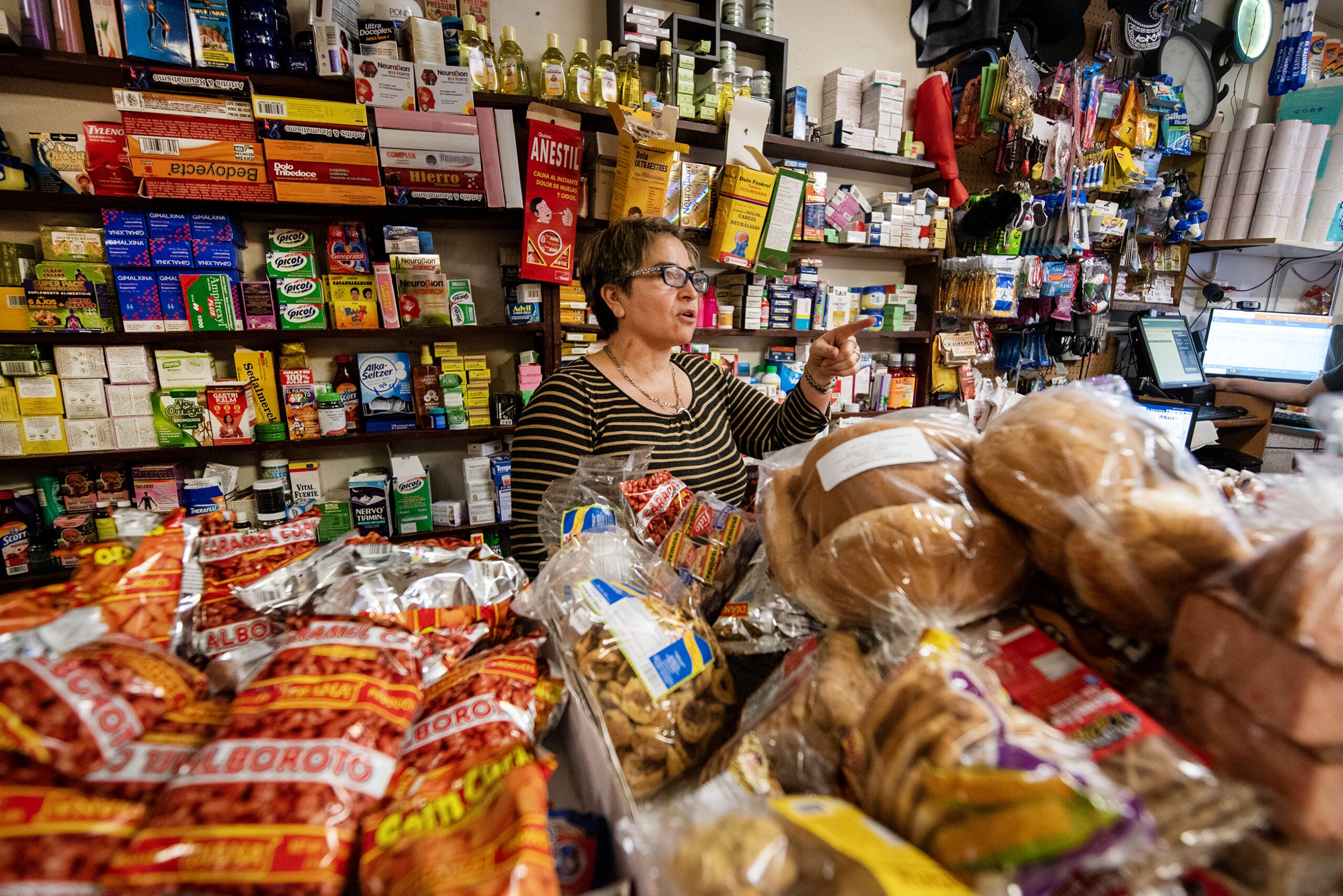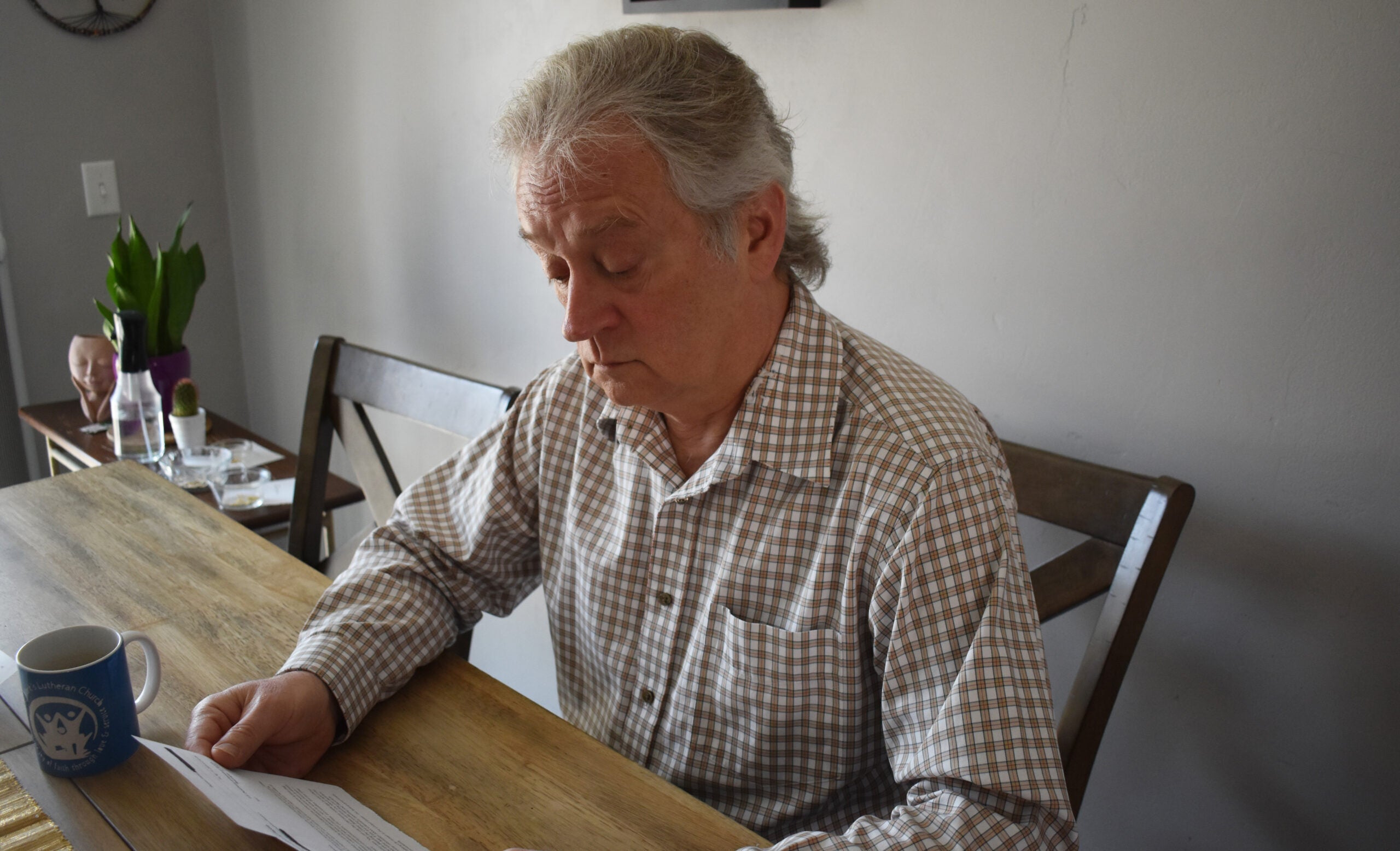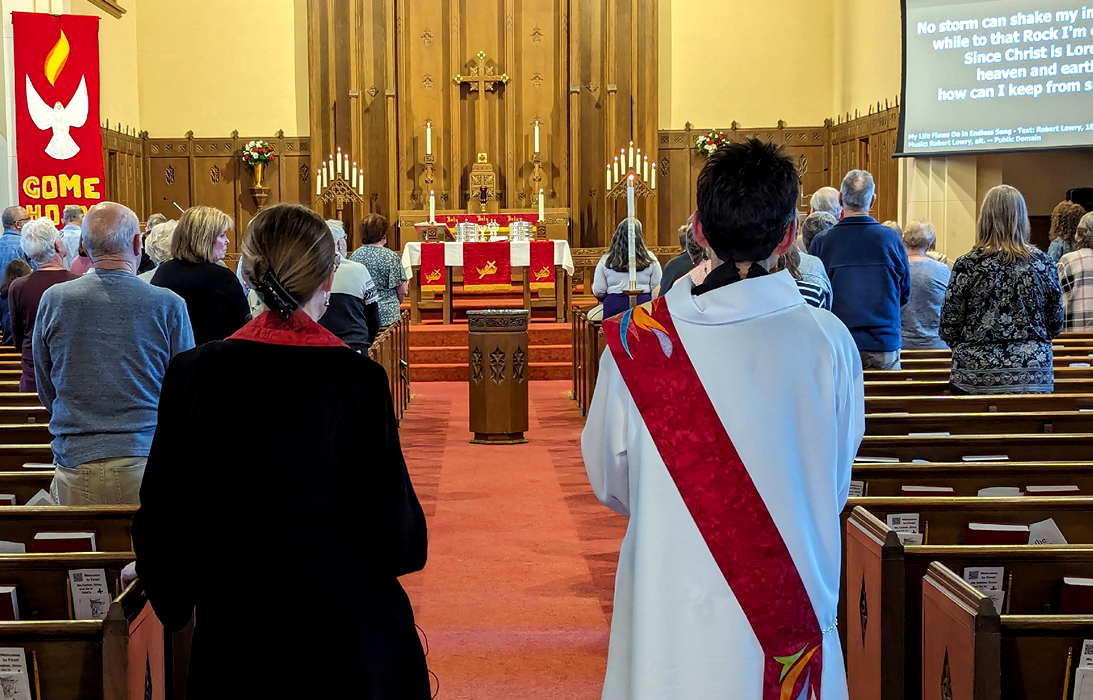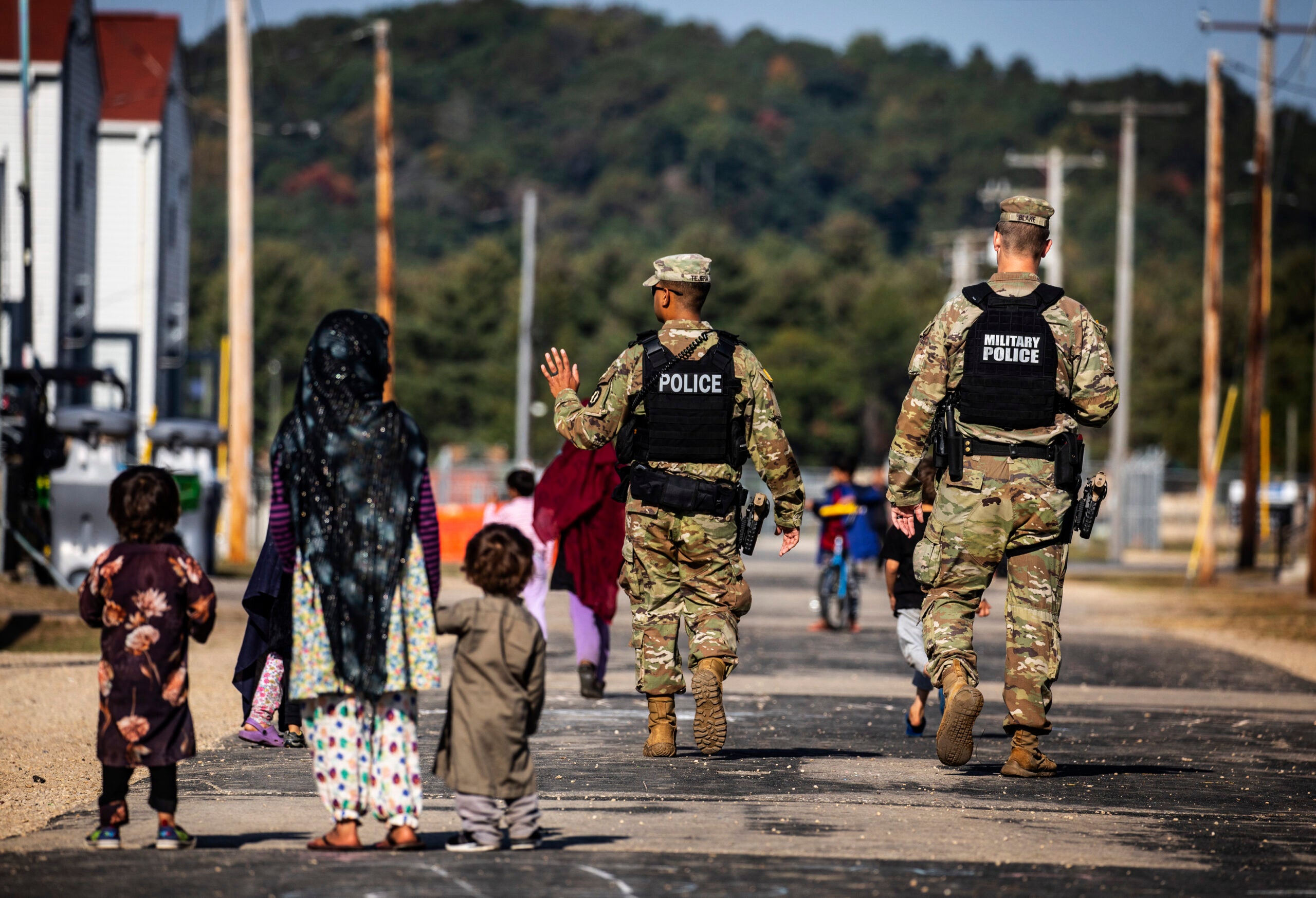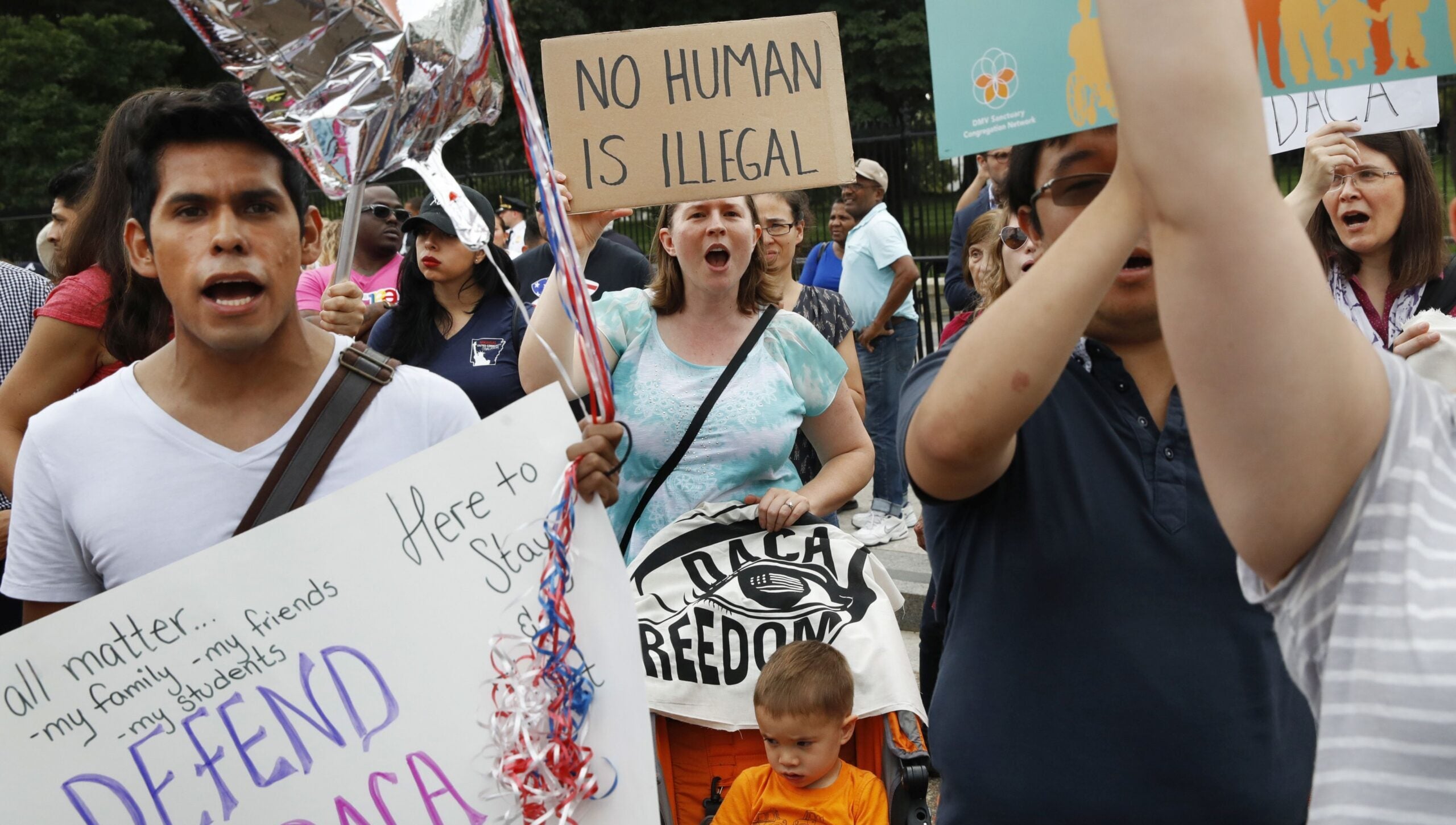Byron used to live in Managua, Nicaragua — the bustling capital of the country, with a population of over 1 million.
In 2022, he left behind his brothers, parents and friends in search of a better life in America. He spent 17 days trekking through Guatemala, Honduras and Mexico to reach the U.S.-Mexico border in El Paso, Texas. There, he was allowed to be received by friends who said he could stay with them almost 1,500 miles away, in southeastern Wisconsin.
Today, he lives with friends and fellow immigrants near an ice skating rink in Whitewater, a small college town with a population of just over 15,000.
Stay informed on the latest news
Sign up for WPR’s email newsletter.
Like others, Byron, who didn’t want his last name used in the story out of concerns for his safety, is seeking asylum in America. A letter from city officials estimates between 800 and 1,000 migrants — many of them from Nicaraugau and Venezuela — have arrived in Whitewater since early 2022.
The 27-year-old now wants to make Whitewater his permanent home.
“When I finally got here, I was happy,” he said. “I felt relieved knowing that I might have better opportunities here. … I (tried) to find a better place to live, try to feel safe, try to work hard as everyone does.”
He loves living in Whitewater. It’s safe. It’s quiet.
He’s volunteering at a local food pantry to help others like him.
“I really like it, I mean that’s why I (will) never move from Whitewater,” he said. “I’m not planning to leave.”
Many in Whitewater have welcomed the immigrants to the community with open arms. Some say the city’s estimate of the number of new arrivals is too high. Others say it’s a conservative guess.
But no matter the number, local officials claim the increase in population is straining some of the city’s public services — and they’re seeking more resources to better serve the new population.
The letter from officials, which was sent to President Joe Biden in January, attracted attention from some politicians who say it’s a sign the U.S. immigration system is broken. But Whitewater’s experience shows the reality of immigration in a small community, both in the challenges and the potential rewards.
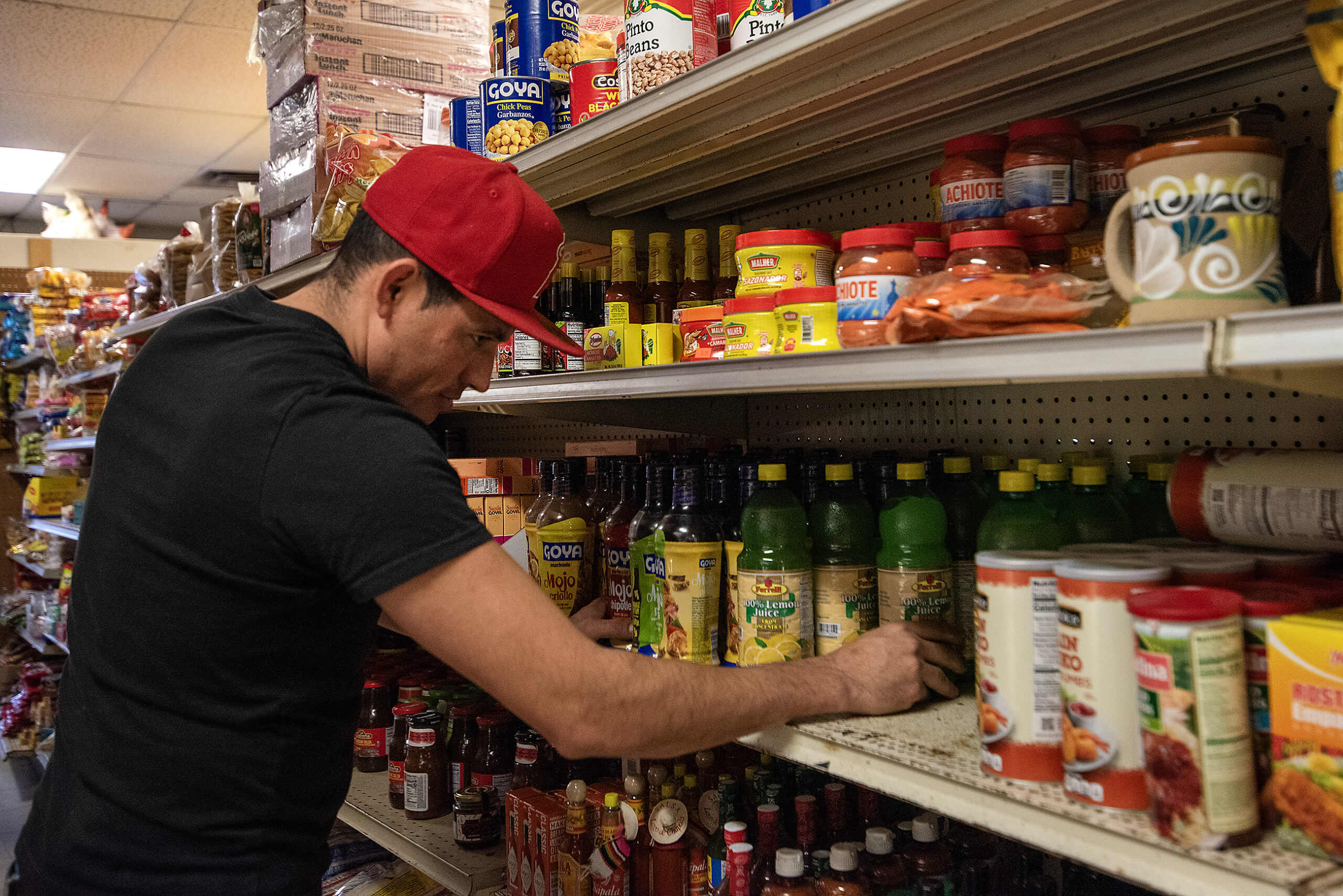
Community groups step up to fill the need
Several local organizations and nonprofits in Whitewater have been working to serve the newcomers. That includes Kay Robers, who runs The Community Space in Whitewater, a food pantry which has seen an uptick in need, largely due to the new immigrants.
The walls of the pantry are lined with coats, boots and warm clothing. There are small classrooms where English-language classes for adults are held. There’s yellow tape at the front of the space where people can line up to sort through shelves of food.
“I can tell when a new group comes in because we see different faces,” Robers said. “They’re just very easy to get along with for us. They’re not rowdy, not selfish.”
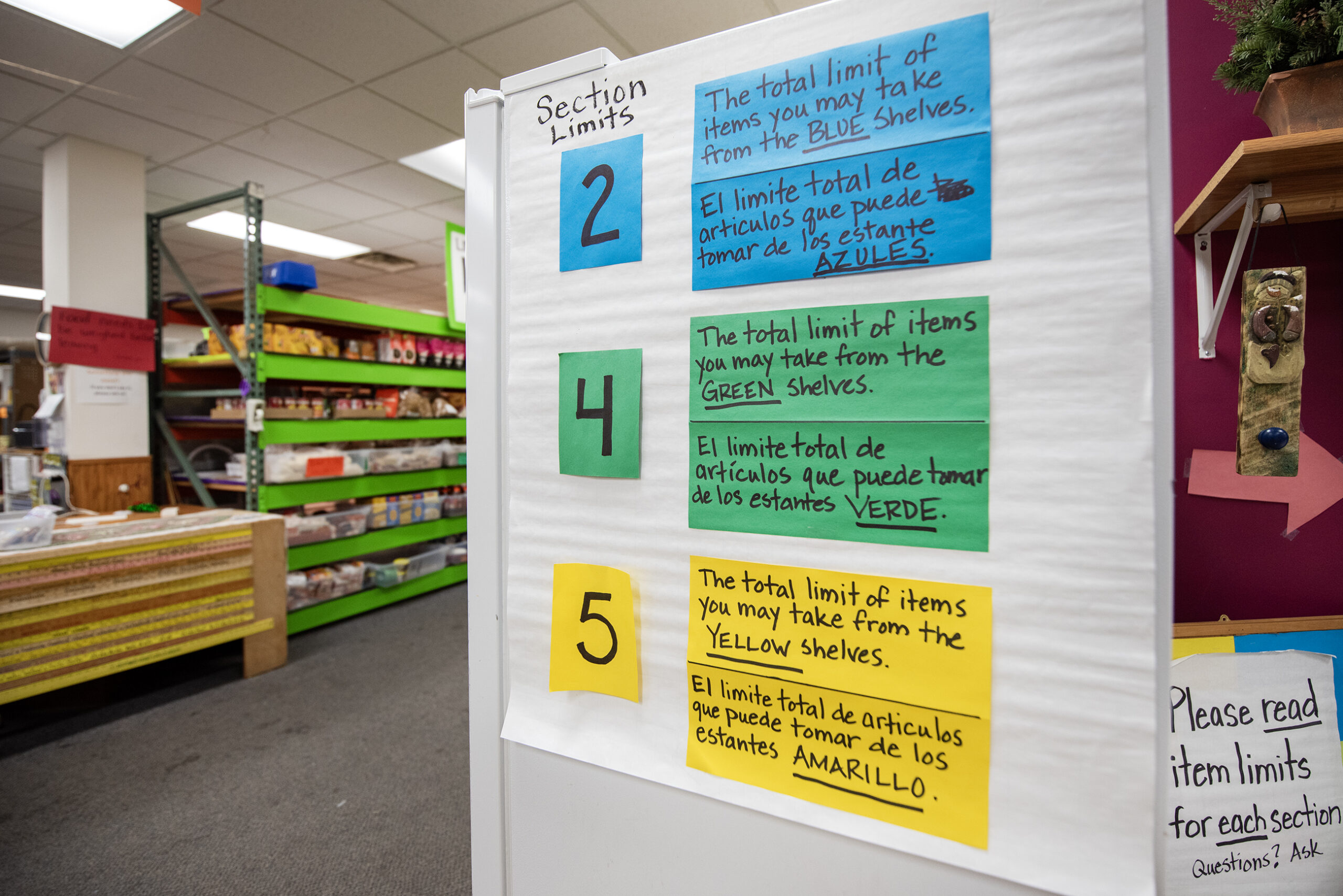
Robers said some people now wait outside in the parking lot before the pantry is open.
The pantry also has Spanish translations throughout the space.
Leche: milk.
Huevos: eggs.
Pan: bread.
Robers, who described many of the newcomers as “quiet” and “calm,” said she didn’t notice the uptick overnight. She said the growth in new immigrants in the community was not immediately apparent.
“If you didn’t know they were here, you wouldn’t know they were here,” Robers said.
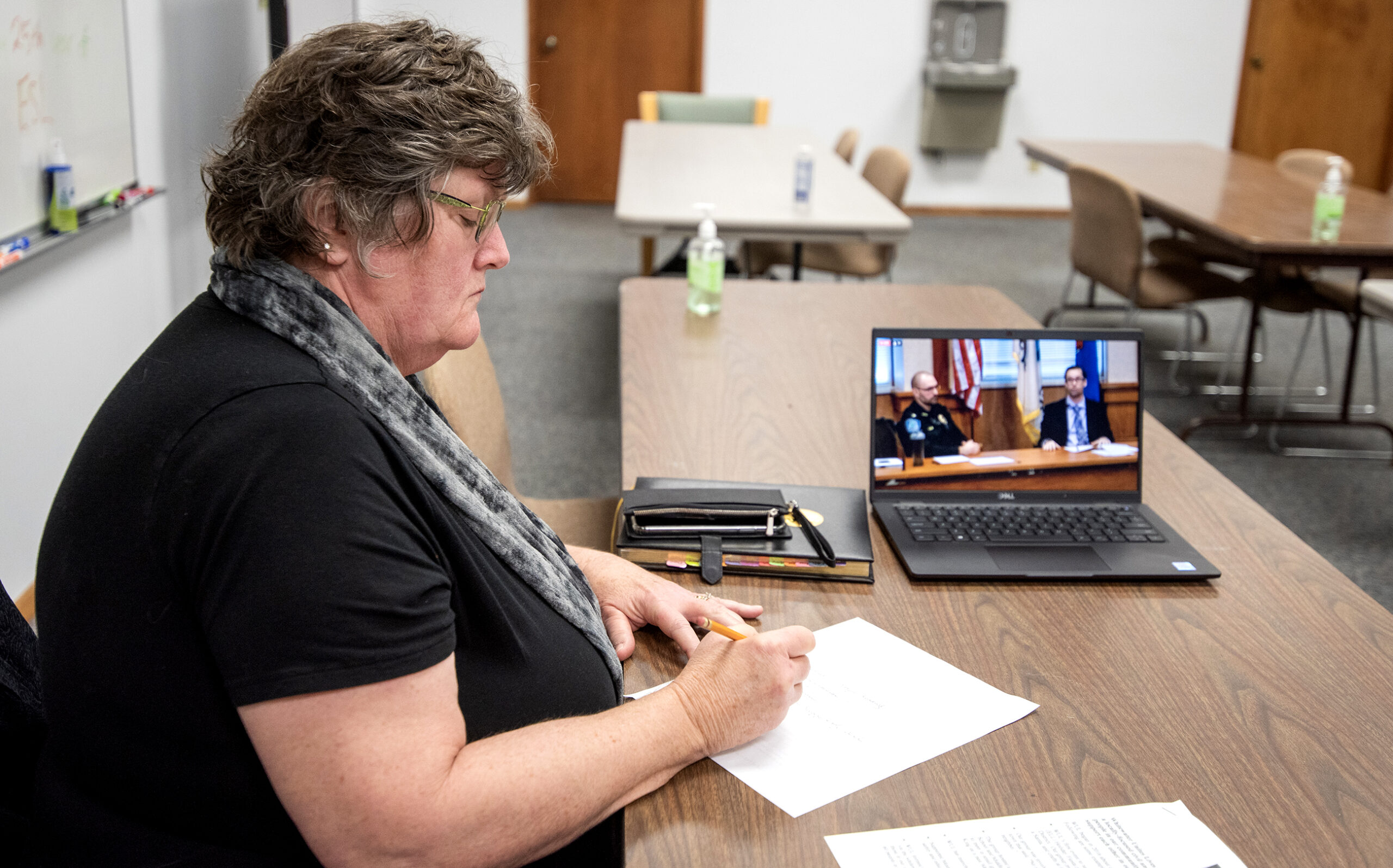
Juana Barajas has noticed the increase. She owns a Mexican grocery store, LaTienda Mexicana San Jose, which has been in business for decades.
“They’re making Whitewater better,” Barajas said.
She’s now making different dishes for the Nicaraguan and Venezuelan immigrants. The store even sells merchandise with those countries’ flags on it.
She said she used to sell “100 percent Mexican food,” but that has changed. She now sells a lot of a Latin American soup called caldo.
“They don’t call it ‘caldo.’ They call it ‘sopa,’” she said. “You’re learning a lot of things.”
Marjorie Stoneman, who leads the local community group Whitewater Unites Lives, is also seeking to welcome the immigrants. She grew up in Whitewater, but after moving away, she moved back with her husband so they could raise their son there.
“The community is more diverse than it was when I was growing up and I love it,” Stoneman said. “I’m so glad my son had a chance to meet more people that don’t look like him or speak the same language.”
Still, in the letter sent to Biden, city officials said the increase in new residents is putting a “great strain on our existing resources.”
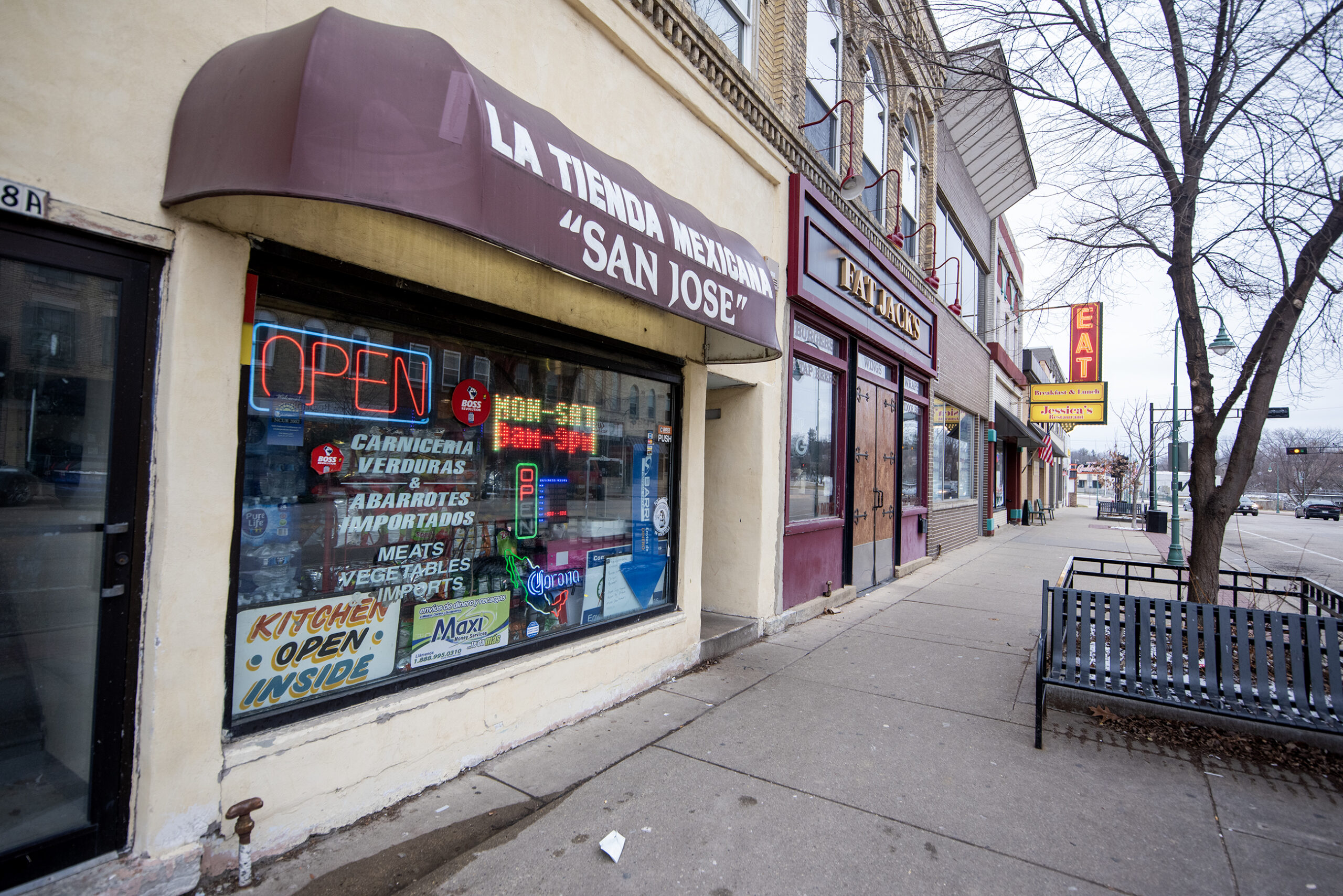
Police, city asking for more resources to help with newcomers
Whitewater Police Chief Dan Meyer said the motivation behind the letter is asking for more resources to help better serve the immigrants. That’s after three major incidents in January 2022 sparked conversations about how to address the rise.
Meyer said a family — with a 3-year-old and 2-year-old — were found inside a 10 feet by 10 feet shed in weather that was 10 degrees below zero.
Then, at the scene of a fire, police found two young kids sleeping on the floor of an abandoned building.
Meyer also said police investigated a case where a 14-year-old girl was being forced to work by her father, instead of attending school.
“The intent behind it (the letter) really is to make sure that we as a community, or we as city leadership, are doing everything within our power to obtain the resources that we sorely need, prior to going to referendum and asking our community members to pay for something like this through taxation,” Meyer said.
Meyer says he doesn’t want the issue to be politicized. But the rise has caught the attention of politicians. U.S. Rep. Bryan Steil and U.S. Sen. Ron Johnson held a roundtable in November where they discussed the increase with Meyer and Walworth County Sheriff Dave Gerber, who drew connections to the illegal drug trade and the rise in immigration in Whitewater.
Meyer said although the area is seeing high levels of drug activity, he’s not sure how much of that activity is due to new immigrants.
“It’s (the letter) been used as political ammunition in a way and that was never the intent,” Meyer said.
Stoneman, who sees the new immigration as a positive for the community, said she also supports asking for more resources to help better serve the newcomers.
“I think we all need to support each other in our common humanity. So that is very sad to me, that that whole story became so political,” Stoneman said.
For starters, the letter asks for more staffing for police so they can get back to more proactive policing. Meyer said from 2010 to 2021, the Whitewater Police Department averaged around 2,400 traffic stops every year. In 2022, that number dropped to 1,719 and in 2023, they saw just over 1,200 traffic stops.
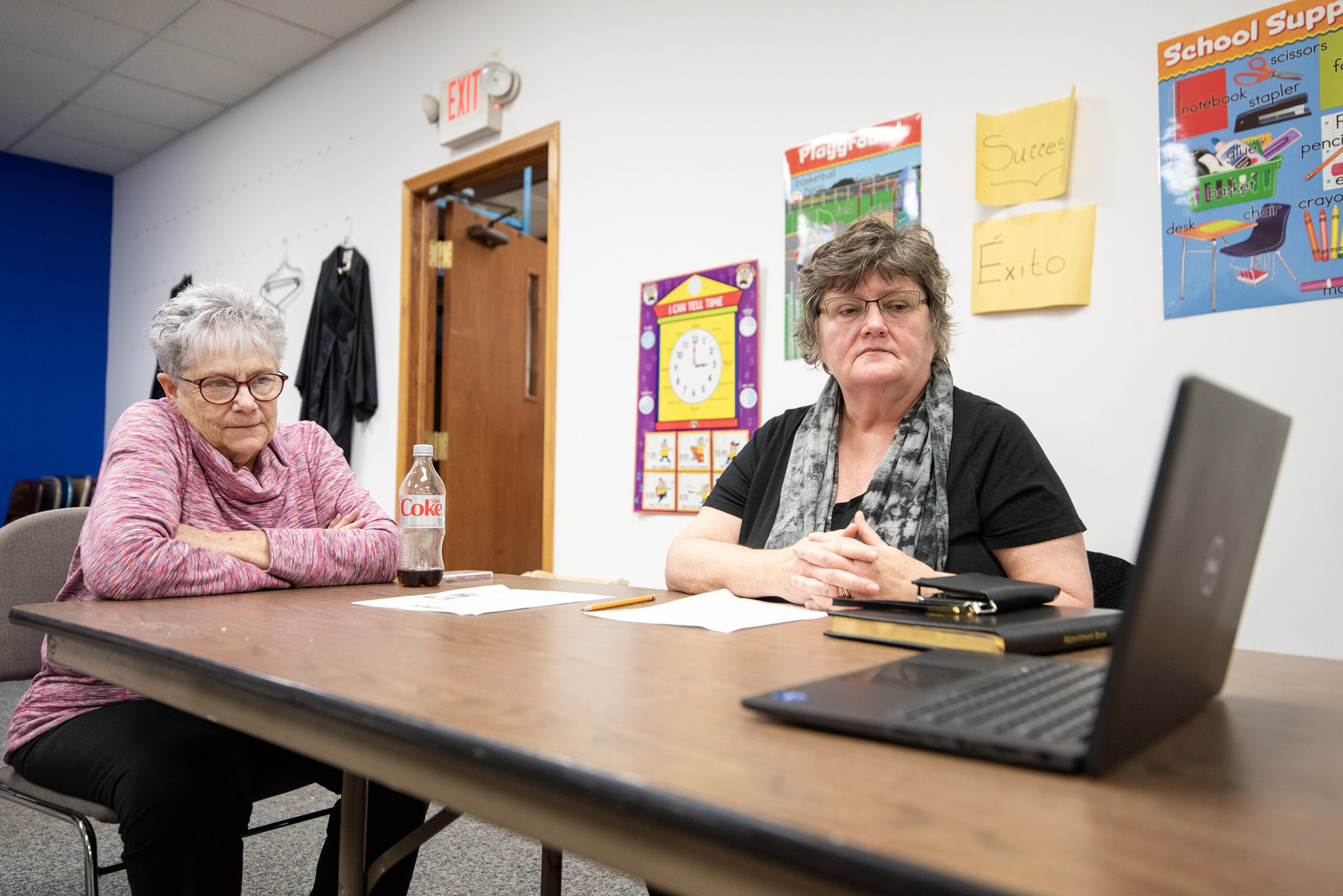
Meyer said the changes have also included an estimated $6,000 spent on translation services in 2023 and a higher workload that’s made it more difficult to police proactively as well.
He also said adding an immigrant liaison position would do “wonders.” That person could be a point of contact for the immigrants to help get them resources and receive care. Meyer believes some people aren’t calling the police because they’re afraid of getting in trouble.
“There’s a huge barrier that we have in law enforcement in terms of trust,” he said. “Many of them are coming here because they don’t trust the government that they left, whether it’s Nicaragua, Venezuela, so … why would you expect anything different when you get here?”
He also wants resources for local nonprofits and organizations, or groups that can help give the immigrants shelter and health care.
“Those are the types of needs — basic human needs — that need to be met,” Meyer said.
U.S. Sen. Tammy Baldwin, a Democrat, also weighed in. She sent a letter pressing Biden to “provide the resources necessary to respond to this period of unprecedented migration.”
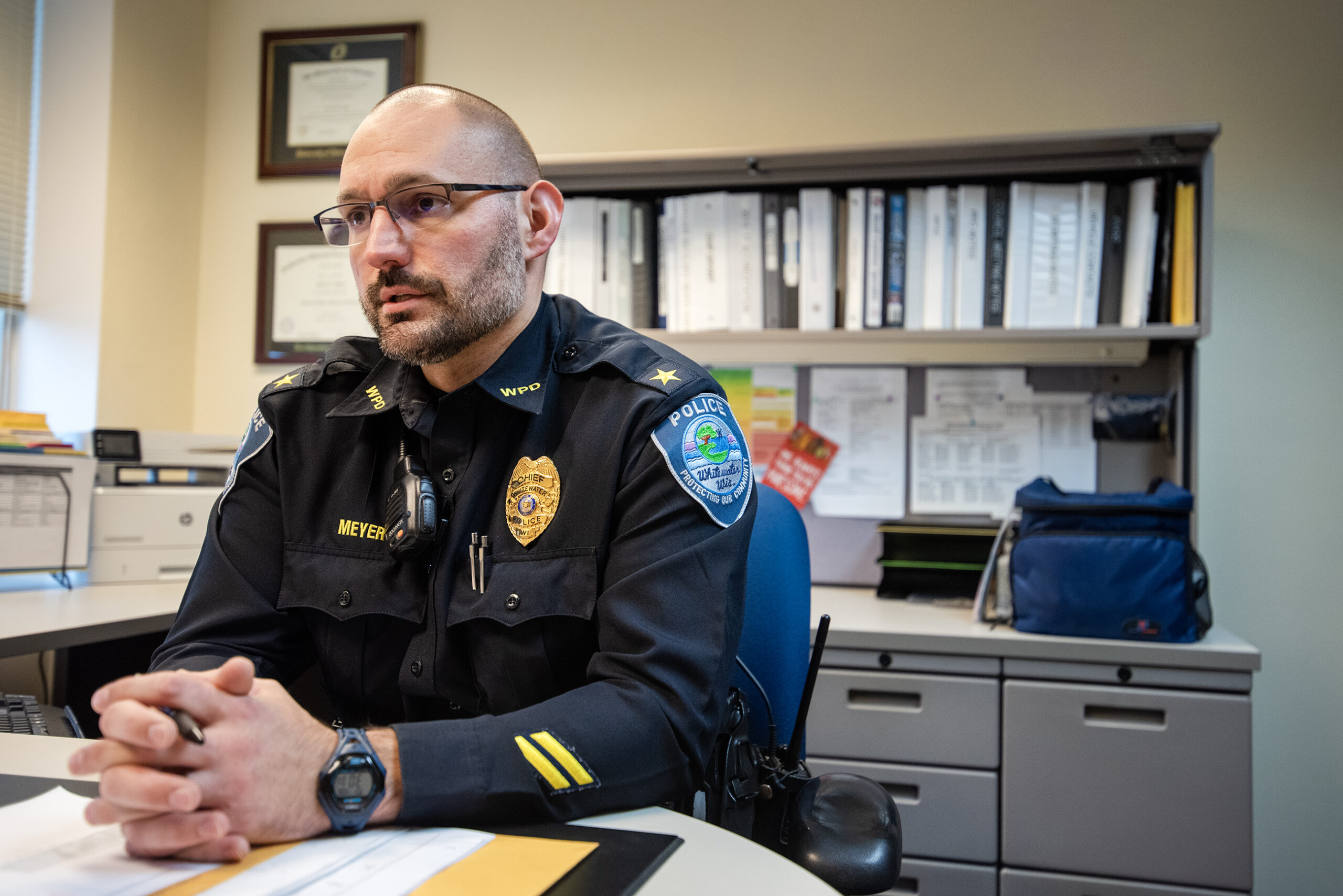
‘They want to assimilate’
Immigration and securing the border are among the most important issues for voters in 2023, according to surveys. And data show a marked increase in border crossings in recent years.
In 2022, U.S. Customs and Border Protection registered more than 2.4 million border encounters with migrants at the Southwest border — a 37 percent jump from the 1.7 million recorded in 2021, according to the National Immigration Forum. The forum said that increase is largely due to the growing number of people fleeing authoritarian regimes in Venezuela, Cuba and Nicaragua. Many of those people are seeking asylum in America now.
Last year, Milwaukee-based immigration attorney Marc Christopher presented to Whitewater officials about how to best deal with the influx of immigrants. He’s seen other small communities across Wisconsin and the Midwest see an increase in their immigrant populations as well. And like Byron, many new arrivals will naturally seek out places where they know someone. This can lead to clusters of immigrant growth in communities like Whitewater.
“If someone locates here and finds it’s a good community, good schools, job opportunities, other people will follow,” Christopher said.
The process of immigrating to the U.S. is extremely complex. There are almost 1.6 million asylum-seekers waiting for an asylum hearing in the U.S., according to 2022 data.
Christopher also said it’s important to note that asylum seekers are not in the country illegally.
“They want to follow the rules, they want to assimilate,” he said. “It’s easy to scapegoat these individuals and I think it doesn’t do anyone any good.”
While they wait for their paperwork and for their asylum case to be completed, he said they can offer benefits for the community as well.
“The individuals that are coming up are family-oriented, they’re hard-working, they’re religious, they acclimate themselves into our schools and community and in my experience, they bring an extra positive element to any community,” Christopher said.
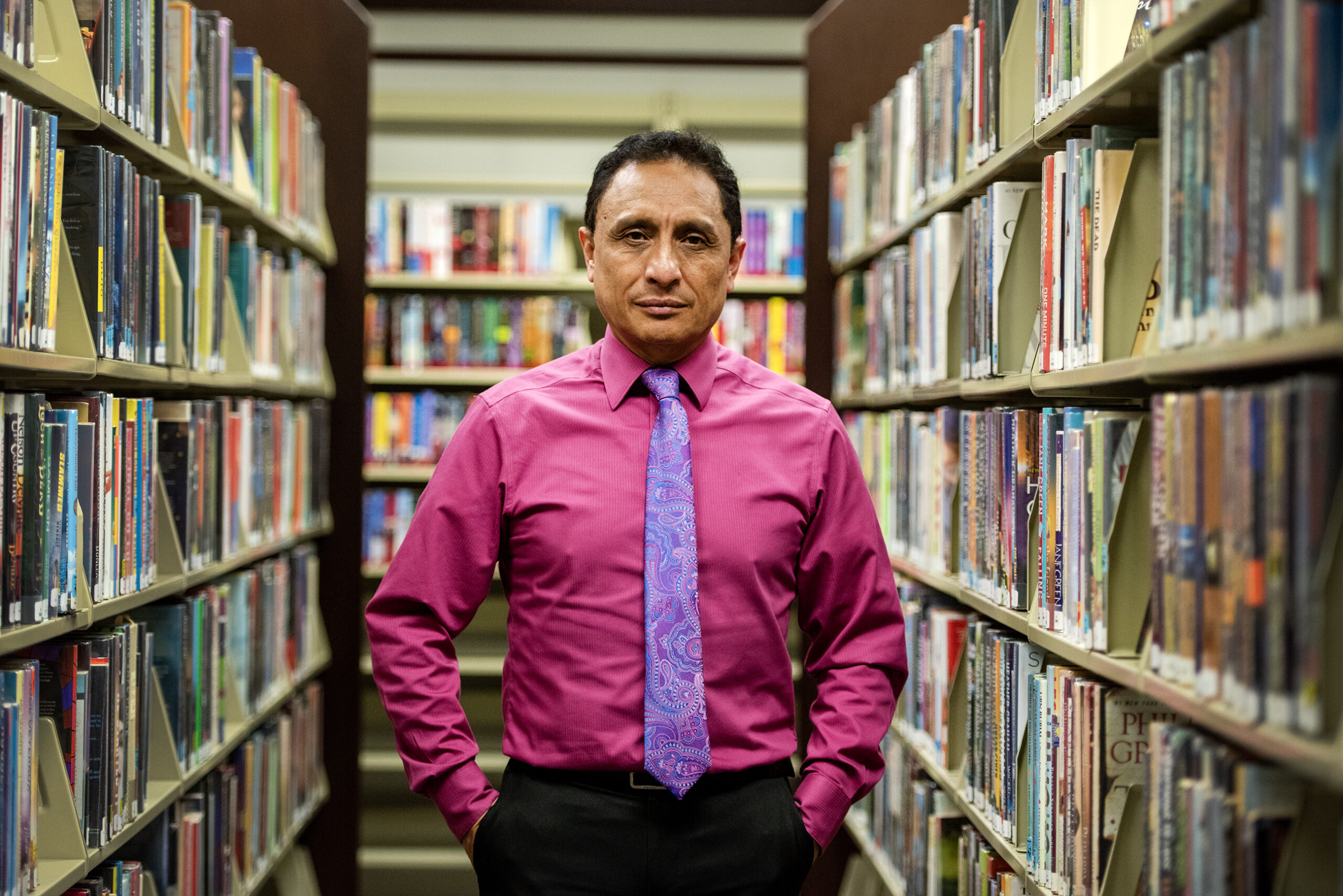
Community advocate Jorge Islas-Martinez, who himself immigrated to Wisconsin from Mexico three decades ago, also hopes others see the benefit new immigrants offer to a community. He said many new immigrants face several hurdles, including finding safe housing, employment and transportation.
It’s also concerning to Islas-Martinez that Wisconsin is one of 31 states that does not allow unauthorized immigrants to obtain driver’s licenses.
“Why we don’t look for the solution for this?” Islas-Martinez said. “How come we don’t follow example we see in 20 states right now, that they are offering the temporary drivers licenses?”
He said it’s important for others to know who is behind the wheel and obtaining a license can help immigrants with transportation — being able to buy a car and get car insurance.
During the first eight months of 2022, the Whitewater Police Department issued more than 200 citations for operating without a license — roughly a threefold increase compared to that time period in 2020.
“I can’t tell you how many times we’ve (Whitewater police) had contacts with somebody and unbeknownst to that officer, it’s the second, third, maybe fourth time that we’ve had contact with that person. And every single time, we’ve gotten a different name and date of birth for that person,” Meyer said.
Gov. Tony Evers has tried to change that through multiple budget proposals, but provisions to extend driver’s licenses regardless of immigration status have not been approved by Wisconsin’s Republican-controlled Legislature. But Islas-Martinez said that’s something he wants to see lawmakers take action on sooner rather than later.
And that’s the approach he said the community should take to other challenges that come from the new arrivals, as well.
“I think, if there’s something wrong, let’s fix it together. Let’s talk about it,” he said. “Let’s create more trust. Let’s create unity, not divisions.”
Wisconsin Public Radio, © Copyright 2025, Board of Regents of the University of Wisconsin System and Wisconsin Educational Communications Board.
